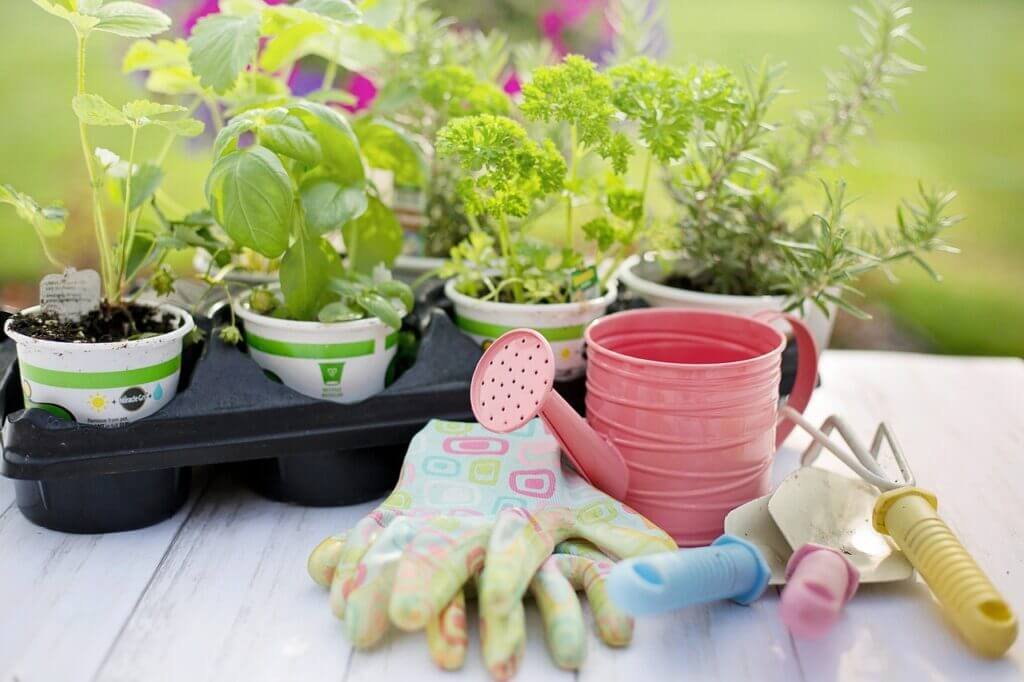In today’s fast-paced world, the need for sustainable practices and healthy living has become more prominent than ever. With urbanization on the rise, the question arises: are urban gardens good for ecosystems and humans? Urban gardens, with their ability to turn concrete landscapes into green havens, not only provide a rejuvenating escape but also offer a multitude of benefits for both the environment and our well-being. From enhancing biodiversity and reducing urban heat island effects to promoting physical and mental health, these pockets of greenery serve as crucial oases amidst the bustling city life. So let’s explore the incredible impact urban gardens can have on ecosystems and humans, and why they deserve a place in our urban landscape.

Positive impact on ecosystems
Enhance biodiversity
Urban gardens play a crucial role in enhancing biodiversity within cities. By providing a space for a diverse range of plants and trees, urban gardens attract a variety of insects, birds, and other wildlife. This increased biodiversity is important for maintaining ecological balance and contributes to the overall health of the ecosystem.
Provide habitats for wildlife
Urban gardens act as mini ecosystems within the concrete jungles of cities. They provide much-needed habitats for wildlife, offering shelter, food sources, and nesting sites. Birds, bees, butterflies, and other pollinators find refuge in these green spaces, helping to support their populations and ensure their survival.
Improve air quality
One of the significant benefits of urban gardens is their ability to improve air quality. Through photosynthesis, plants and trees in these gardens absorb carbon dioxide and release oxygen, helping to reduce pollution levels. Furthermore, the vegetation in urban gardens traps dust particles, filters harmful pollutants, and mitigates the effects of urban air pollution. This leads to cleaner and fresher air, creating a healthier environment for both ecosystems and humans.
Positive impact on human health
Access to fresh and nutritious food
Urban gardens have the potential to address food security issues in urban areas by providing access to fresh and nutritious food. By growing fruits, vegetables, and herbs, urban gardeners have the opportunity to consume produce that is free from harmful chemicals and pesticides. This not only improves the nutritional quality of their diets but also promotes overall well-being.
Physical activity and mental well-being
Engaging in urban gardening activities offers numerous physical and mental health benefits. The physical activity involved in tending to plants, digging, and planting helps individuals stay active and promotes cardiovascular fitness. Additionally, spending time in nature and green spaces has been linked to reduced stress, improved mental well-being, and increased overall happiness.
Community engagement and social cohesion
Urban gardens have a unique ability to bring people together and foster a sense of community. They act as gathering spaces where individuals from different backgrounds can connect, share knowledge, and build social relationships. Community gardening initiatives encourage collaboration and cooperation, leading to increased social cohesion within neighborhoods and cities.

Creation of sustainable food systems
Reduced food miles and carbon footprint
Urban gardens contribute to the creation of sustainable food systems by reducing the distance that food travels from farm to plate. By growing food in the heart of cities, urban gardeners reduce the need for long-distance transportation, therefore minimizing carbon emissions associated with food production. This localized approach to food production also reduces the reliance on fossil fuels and supports a more sustainable future.
Promoting organic farming practices
Urban gardening promotes organic farming practices, eliminating the need for synthetic fertilizers and pesticides. By utilizing natural pest control methods, such as companion planting and attracting beneficial insects, urban gardeners can grow food using sustainable and environmentally friendly techniques. This contributes to the health of ecosystems by reducing chemical pollution and protecting beneficial organisms.
Food security and self-sufficiency
Urban gardens play a crucial role in enhancing food security by providing communities with access to locally grown food. By growing their own fruits and vegetables, individuals and communities can become more self-sufficient and less reliant on external food sources. This not only improves food security but also strengthens community resilience in the face of challenges such as climate change and disruptions in the global food supply chain.
Improvement of urban environment
Enhanced aesthetics and green spaces
Urban gardens contribute to the beautification of cities by adding vibrant green spaces. These pockets of nature break up the concrete landscape, creating visually appealing areas that help improve the overall aesthetics of urban environments. Whether it’s a rooftop garden or a community park, these urban green spaces bring a sense of tranquility and rejuvenation in the midst of the bustling cityscape.
Reduced urban heat island effect
The presence of greenery in urban gardens helps combat the urban heat island effect, where cities become significantly hotter than surrounding rural areas. Through the process of transpiration, plants release moisture into the air, which cools and humidifies the surrounding environment. This natural cooling mechanism helps to reduce the ambient temperature, making urban spaces more comfortable and less reliant on energy-consuming air conditioning.
Stormwater management
Urban gardens play a crucial role in stormwater management, particularly in areas with limited green spaces. The soil in these gardens acts as a sponge, absorbing and slowing down rainwater runoff. This helps to prevent flooding, reduce soil erosion, and improve water quality by filtering out harmful pollutants. Urban gardens can also be designed with rainwater harvesting systems, further contributing to sustainable water management practices.

Integration of green infrastructure
Rainwater harvesting and irrigation
Urban gardens offer an opportunity to integrate rainwater harvesting systems, reducing the reliance on municipal water sources for irrigation purposes. By collecting and storing rainwater, gardeners can ensure a sustainable water supply for their plants, particularly during dry spells or water restrictions. This reduces the strain on freshwater resources and promotes efficient water use.
Pollinator-friendly gardens
Incorporating pollinator-friendly plants in urban gardens helps support the declining populations of bees, butterflies, and other pollinators. By providing nectar-rich flowers and a variety of plants, urban gardeners create habitats and food sources for these important pollinators. This is essential for maintaining plant diversity, promoting crop pollination, and ensuring the continued production of fruits and vegetables.
Green roofs and vertical gardens
In dense urban environments, space for traditional gardens may be limited. However, green roofs and vertical gardens offer innovative solutions. Green roofs involve the installation of vegetation on rooftops, providing the benefits of urban gardening while utilizing otherwise unused spaces. Vertical gardens, on the other hand, utilize walls and vertical structures to grow plants, creating a visually striking and space-efficient green infrastructure.
Challenges and considerations
Limited space and land availability
A significant challenge faced by urban gardeners is the limited availability of space for gardening. In densely populated cities, finding suitable land for cultivating plants can be a challenge. However, the use of creative solutions such as rooftop gardens, community gardens, and even vertical gardens can help overcome this limitation.
Contamination and soil quality concerns
Urban gardens may face contamination issues due to the presence of pollutants in the soil, especially in areas with a history of industrial activities. Soil testing and remediation may be necessary to ensure the safety of growing food in these urban spaces. Additionally, regular testing of soil quality is important to maintain optimal conditions for plant growth and productivity.
Maintenance and management
Urban gardens require consistent maintenance and management to thrive. This includes regular watering, weeding, pest control, and monitoring of plant health. Time and effort must be invested to ensure the success of urban gardens, which can act as barriers for those with busy schedules or limited gardening knowledge. Community engagement and volunteers can play a significant role in sharing the gardening workload and ensuring the long-term sustainability of urban gardens.

Education and awareness
Promoting sustainable practices
Educating urban gardeners and the wider community about sustainable gardening practices is essential for maximizing the positive impacts of urban gardens. This includes promoting organic growing methods, composting, water conservation, and biodiversity conservation. By raising awareness and providing resources, individuals can make informed choices and contribute to the overall sustainability of urban gardens.
Teaching about ecosystems and food systems
Urban gardens provide an excellent opportunity for educating people about ecosystems and the interconnectedness of the natural world. Through hands-on experiences, individuals can learn about the importance of biodiversity, plant life cycles, and sustainable food production. This education fosters an appreciation for the environment and empowers individuals to make environmentally conscious decisions.
Engaging youth in gardening
Involving youth in urban gardening initiatives has numerous benefits. It helps children and adolescents develop a sense of responsibility, patience, and respect for the environment. Gardening also provides an opportunity for outdoor learning, promoting curiosity, creativity, and problem-solving skills. By engaging youth in gardening, we can cultivate a new generation of environmentally conscious individuals who are passionate about sustainable living.
Policy and urban planning
Supportive regulations and incentives
To promote the establishment and maintenance of urban gardens, supportive regulations and incentives are necessary. This may include policies that encourage the use of vacant land for community gardens, tax incentives for urban gardeners, and streamlined regulations for composting and rainwater harvesting. By aligning policies with the goals of urban gardening, cities can actively support and encourage sustainable practices.
Incorporating urban gardens into city planning
Urban gardens should be considered in city planning and development processes to ensure their integration within the urban fabric. This includes identifying suitable areas for gardening, incorporating green spaces into building designs, and allocating land for community gardens. Integrating urban gardens into city planning not only enhances the aesthetic appeal of the city but also ensures their long-term sustainability and accessibility.
Zoning and land use considerations
Zoning regulations should take into account the unique requirements and benefits of urban gardens. Creating specific zoning designations for community gardens, rooftop gardens, and urban farming can facilitate their establishment and protect them from incompatible land uses. By recognizing the value of urban gardens, cities can prioritize the allocation of land and resources to support their development.

Case studies and success stories
Urban gardening initiatives in major cities
Many major cities around the world have implemented successful urban gardening initiatives. For example, New York City’s GreenThumb program supports over 500 community gardens, providing residents with the opportunity to grow their own food and build vibrant green spaces. Similarly, in Singapore, the “Gardens by the Bay” project has transformed reclaimed land into a lush urban oasis, featuring sustainable gardening practices and horticultural education.
Community-led projects and their impacts
Community-led urban gardening projects have shown great potential in transforming neighborhoods and improving quality of life. For instance, the Detroit Garden Resource Program in Michigan has empowered local residents to reclaim vacant lots and turn them into thriving urban gardens. Not only has this initiative provided fresh produce for the community, but it has also created jobs, improved neighborhood aesthetics, and fostered a sense of pride and ownership among residents.
Transformation of vacant lots into flourishing gardens
One of the remarkable success stories of urban gardening is the transformation of vacant lots into flourishing gardens. In cities such as Philadelphia and Baltimore, grassroots organizations and community members have partnered to convert vacant lots into productive green spaces. These initiatives have not only beautified neglected areas but have also increased access to fresh food, enhanced community engagement, and reduced crime rates.
Conclusion
Urban gardens have proven to be beneficial ecosystems with a positive impact on both ecosystems and humans. They enhance biodiversity, provide habitats for wildlife, and improve air quality. Additionally, urban gardens promote human health by providing access to fresh food, encouraging physical activity, and fostering social connections. They contribute to the creation of sustainable food systems, improve the urban environment through enhanced aesthetics and stormwater management, and integrate green infrastructure into cities. Despite challenges and considerations, education, policy support, and successful case studies demonstrate the immense potential of urban gardens. By embracing urban gardening, we can create greener, healthier, and more sustainable cities for generations to come.

